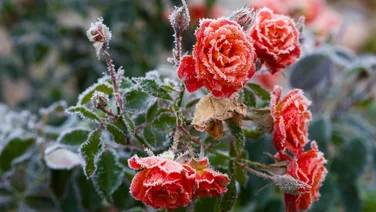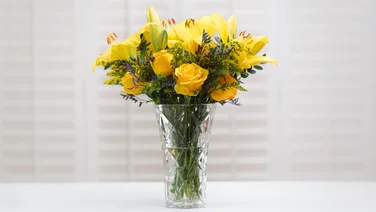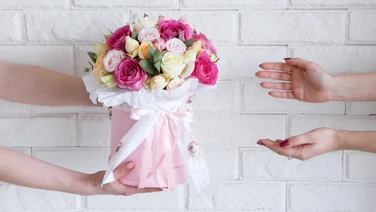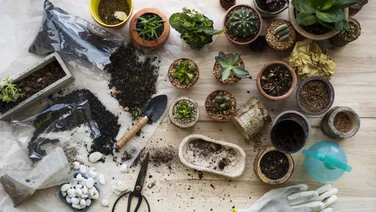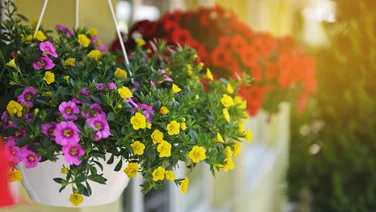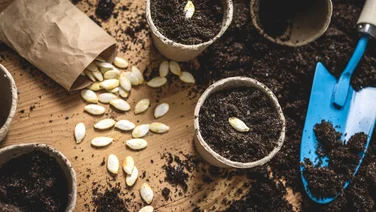To help us provide you with free impartial advice, we may earn a commission if you buy through links on our site. Learn more
- Best compost: At a glance
- How to choose the best compost for you
- The best compost you can buy in 2023
- 1. Westland John Innes Seed Sowing Compost: Best compost for sowing seeds
- 2. Miracle-Gro Performance Organics All Purpose Compost: best multipurpose compost
- 3. GreenBrokers Organic All Purpose Potting Compost: best lightweight compost
- 4. B&Q GoodHome Peat-free Multipurpose Compost: best peat-free compost on a budget
- 5. Thompson & Morgan Incredicompost Multipurpose Garden Compost: best multipurpose compost on a budget

Many plant growers, from beginner gardeners to the heavily green-fingered, have found themselves scouring the internet for the best compost at some point. Typical garden soil, or topsoil, often lacks the nutrients needed to make plants flourish, and if you’re growing on a balcony or even indoors, you’ll definitely need some kind of growing medium to fill your pots with. While it’s possible to make your own in a compost bin from food scraps and garden waste, this is both labour- and time-intensive, taking about a year to generate a usable result.
So how do you choose the best compost when you’re sowing seeds, potting on young plants or using it to relocate established plants? There are a lot of compost varieties to choose from, and it can feel a little overwhelming at first glance. Different plants are happier with different composts – and in different stages of growth, too. To make it less daunting, we’ve put together a short guide to the different types of compost available, along with our top tried-and-tested recommendations. Happy gardening!
Best compost: At a glance
- Best compost for sowing seeds: Westland John Innes | Buy now
- Best multipurpose compost: Miracle-Gro Performance Organics | Buy now
- Best lightweight compost: GreenBrokers | Buy now
- Best peat-free multipurpose compost: B&Q Goodhome | Buy now
How to choose the best compost for you
What compost do I need?
In a nutshell, compost is a mixture of decomposed organic matter that releases nutrients to help your plants grow. Organic compost only contains plant matter and animal products – which could be animal manure, fish blood or bone – while non-organic compost may also include manufactured materials such as perlite, vermiculite or rockwool to aid with drainage and water absorption. Depending on what you’re planting – seeds, houseplants, vegetables, roses or cacti – there are different types of compost that are best suited.
• Multipurpose compost is your best bet for already established plants, although it can be just as beneficial for seed germination and small seedlings, too. It’s usually the cheapest option, but it can dry out quite quickly.
• Seed compost is designed to provide the low levels of nutrients needed at the early stages of a plant’s life and can contain additional ingredients that aid germination. It’s fine and lightweight, and usually more expensive than multipurpose.
• Acid-loving plants such as azaleas, camellias and rhododendrons need an ericaceous compost that has a lower pH, meaning it’s veering into acidic soil territory.
• Container compost (sometimes called potting mix) is what you’ll use for anything you plan to keep in a container; usually houseplants but occasionally potted plants outside, too. Lighter in texture than garden compost, it’s not designed to improve the soil around it. Just to make it more complicated, there are plenty of variants of these potting composts, too, even if they’re in a different field to garden compost.
It’s also worth checking what kind of drainage your plants need. Some are happy to be planted in straight compost, while others prefer their compost mixed with grit, sand or perlite to help with aeration and prevent their roots from becoming waterlogged.
What’s the issue with peat compost?
Peat, which is an accumulation of decaying vegetation and sphagnum moss, has long been used in the majority of compost varieties thanks to its ability to retain water and nutrients. Unfortunately, peat also contains carbon, so when it’s spread on your garden it quickly converts into carbon dioxide, adding to global warming. Peat is also sourced from peat bogs in the UK and Ireland: these are important habitats for local flora and fauna and are becoming depleted to a critical level.
Luckily, gardeners in their droves are now opting for peat-free alternatives, of which there are many, usually made from a combination of ingredients such as coir (from coconut husks), wood fibres and composted tree bark. It’s worth actively looking for “peat free” on any compost’s label; otherwise, it’s likely to contain some peat.
How much should I spend?
Generally speaking, the cost will depend on the type of compost and the size of the bag, as it’s often more cost-effective to buy 20 litres instead of five litres. A general rule of thumb many gardeners go by is that the cheapest option will be the worst quality. Price doesn’t always reflect a compost’s quality, though: sometimes a cheaper brand can actually deliver preferable results.
READ NEXT: The best sprinklers to buy
The best compost you can buy in 2023
1. Westland John Innes Seed Sowing Compost: Best compost for sowing seeds

Price: £3 for 10 litres | Buy now from Wickes Westland’s Seed Sowing Compost has a balanced nutrient supply that promotes fast germination and continues feeding seeds and cuttings for their first three weeks of growth. There’s a high loam content in this compost, as well as added vermiculite to help retain moisture around each seed.
We planted a variety of seeds with this Westland compost in some cell trays – tomato, courgette, cosmos, sweet pea, runner bean and pumpkin. Most germinated quickly then continued to grow with no issue, while a few sprouted a little later. The compost’s fine texture feels like sand and doesn’t clump at all, making it easy to water. The only issue we found is that it can dry into rather a hard crust, but as long as you’re watering regularly it shouldn’t harm a seed’s chances. You can also lightly disrupt the compost’s surface to stop that crust forming. As every compost can vary from bag to bag, it’s worth checking for lumps before filling any pots or cells as well.
2. Miracle-Gro Performance Organics All Purpose Compost: best multipurpose compost

Price: £10 for 40 litres | Buy now from Amazon
Miracle-Gro is famous for its all-purpose plant food and lawn food, as well as an extensive line of composts. Most of the product line includes chemicals and synthetics, but the Performance Organics range doesn’t. This compost is versatile enough to cope with all your plant needs: this version slowly releases nutrients over a period of three months, which is perfect for the summer season. It does contain some peat, but the all-organic content means it’s still safe around pets and children.
At £10 for 40 litres, Performance Organics compost isn’t the cheapest option around, but you’re paying for brand recognition and the tantalising promise that you’ll “grow plants twice as big, organically”.
3. GreenBrokers Organic All Purpose Potting Compost: best lightweight compost

Price: £10 for 20 litres | Buy now on Amazon
If you’re growing plants in a small home or have limited storage space for your gardening paraphernalia, GreenBrokers has created the perfect solution with this dry compacted compost. It’s totally organic, peat-free, and made from coconut coir, which makes it pet- and child-friendly, but the best part is that 20 litres of compost arrives at your doorstep in a package measuring just 18 x 18 x 8cm. To rehydrate the whole pack of compost, you simply cut open at the top of the bag, add seven litres of lukewarm water and wait for five minutes until the compost has sufficiently absorbed all the water.
This compost seems to be designed for rehydration all at once, though some customers have successfully managed to break their bricks in half or into sections and stored the rest for future use. There have been also some issues with compost bricks not expanding to the full amount described, but it seems to be related to the water temperature used – just make sure it’s lukewarm or warmer.
Again, this is a rather pricey option, but it’s worth it for the storage capabilities. GreenBrokers potting soil also comes in 10L, 40L and 75L bricks.
4. B&Q GoodHome Peat-free Multipurpose Compost: best peat-free compost on a budget

Price: £4.45 for 20 litres | Buy now from B&Q
With peat-free composts becoming more popular, B&Q is on the bandwagon with a budget option for multipurpose use. B&Q states that this multipurpose compost helps to reduce moisture in soil and will continue feeding for eight weeks after planting, and it contains 100% coir, green compost and composted bark as ingredients.
When we used this compost it worked really well for potting on tomatoes, courgettes, runner beans and sugar snap peas: all the plants grew fast and stayed healthy throughout the season, flowered well and bore fruit. Consistency wise it’s quite a chunky compost, though, and it does seem to vary in quality: there are mixed reviews, with some customers reporting non-decomposed material in their bags and yellowing leaves on their plants. If this happens to you it could still be used as a cheap way of bolstering outdoor beds – and as it comes in bags of 10L for £3.80, 50L for £5.80 and 100L for £8, you won’t be breaking the bank if you get a bad batch.
5. Thompson & Morgan Incredicompost Multipurpose Garden Compost: best multipurpose compost on a budget

Price: £15 for 70 litres | Buy now from Amazon
A whopping 70 litres for just £15 makes the Thompson & Morgan multipurpose compost a strong budget option. We’re also much appreciative of the additional fertiliser food packet that comes with it – once mixed into the compost, this Incredibloom plant feed will continue to boost plant growth throughout the year, apparently resulting in up to 400% more flowering.
As you’d expect from a multipurpose compost, this is versatile enough to use for the majority of your potting needs, particularly for young plants, hanging baskets and indoor plants. It has a neutral pH and a low peat content, instead using 20% surplus wood fibre from sawmills as an added texture ingredient.




